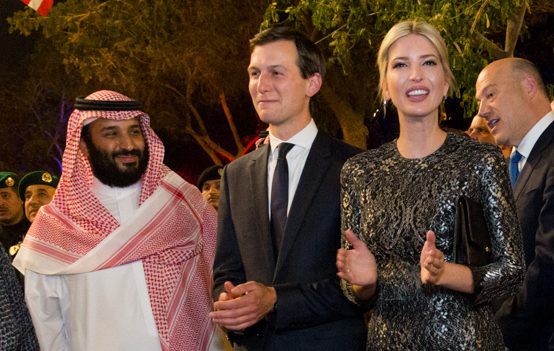Dennis Ross’s Shameless Paean to the Saudi War Criminal

The Saudi crown prince Mohammed bin Salman (MbS) is coming to Washington next month, so naturally we are already being treated to shameless propaganda on his behalf in our newspapers. Here’s Dennis Ross’ plea to “get behind” the Saudi king’s son:
I have just returned from my second trip to Saudi Arabia since Mohammed bin Salman, the 32-year-old crown prince, became the driving force for change in the kingdom. His efforts to transform Saudi society amount to a revolution from above. Many seem to equate him with the shah of Iran, who thought he could Westernize his country without modernizing its social, religious roots and was ultimately swept away in the revolution that produced the Islamic Republic of Iran. I see him as more like Mustafa Kemal Ataturk — a leader who revolutionized Turkey by taking away the power of the religious base and secularizing the country.
It is bad enough to take MbS’s “reform” program at face value, as Tom Friedman did last year, but it is ludicrous to suggest that this power-grabbing Saudi despot can be compared to a secularizing modernizer like Ataturk. There is little evidence that he is “taking away the power of the religious base,” especially when his foreign policy has been marked by fueling sectarianism and pandering to Saudi clerics. Bruce Riedel reported on this last month:
Pursuing a very sectarian agenda at home and abroad gives the king and crown prince clerical support despite the defense minister’s vocal support for “moderate” Islam and reforms like permitting women to drive. It’s a way to keep the mainstream Wahhabi establishment and the Al Sheikhs content that their core interests are safe.
Ataturk didn’t embark on disastrous wars and incompetent regional power plays. As crown prince and defense minister, MbS has presided over a calamitous, failed war in Yemen, and the military coalition that Saudi Arabia leads has been responsible for numerous war crimes. The coalition blockade is directly creating the conditions for the worst famine in decades, and the coalition is the main author of a humanitarian crisis that could be the worst in half a century. This reflects the Saudis’ incompetence and failure of the Saudis’ signature foreign policy initiative under King Salman and his son, and it proves the Saudis and their allies to be some of the most despicable governments on the planet. Predictably, Yemen barely receives a mention in Ross’ op-ed, and there is no acknowledgment that the crown prince he is applauding is also major war criminal.
Ross declares MbS to be a “Saudi revolutionary.” That is a very questionable assertion, but why would the U.S. want to be siding with such a “revolutionary” in any case? The last thing that the U.S. needs is to support more upheaval and destabilization in that part of the world, and to date more upheaval and instability are the only things MbS has created. The crown prince’s rapid rise is a warning to the U.S. that it needs to disentangle itself from the noxious Saudi relationship as soon as possible.
MbS is gulling Western audiences with his internal reform rhetoric while carrying out external policies that fan sectarian hatred and lend strength to jihadist groups. As far as U.S. interests are concerned, the latter are obviously dangerous and alarming developments, and the former is much less meaningful and less important. It is almost always a bad idea to bet so heavily on the ambitions of an inexperienced, rash foreign leader, and in this case it is folly to take MbS at his word about what he is trying to do. That is why it is simply wrong to say that “[w]e in the United States have a tremendous stake in MBS’s success.” If his “success” at home involves destabilizing the rest of the region with reckless adventurism, the U.S. should have nothing to do with it.
Comments